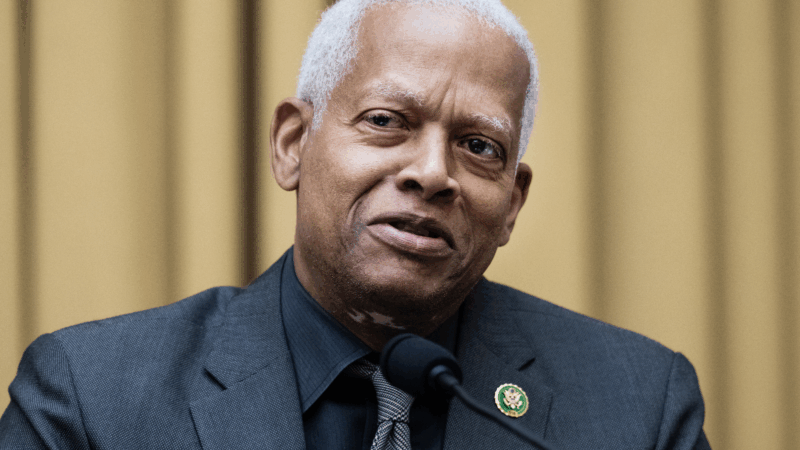Judges would be accountable for abuse even if they retired or resigned, under new bill
A top lawmaker is introducing legislation that aims to increase accountability for federal judges accused of misconduct and abuse.
The new bill from Rep. Hank Johnson, D-Ga., would ensure that pending investigations into judicial misconduct would continue, even if the judges under review retire or resign.
Johnson is trying to close a loophole that federal judges have used to collect pension benefits despite facing credible accusations of wrongdoing by employees.
“Judges and courts should not be allowed to sweep bad behavior under the rug,” said Johnson, the top Democrat on the House Judiciary Committee’s panel on the courts. “This is a necessary first step in ensuring that our courts are places of integrity and safe for judiciary employees.”
His legislation, called the Transparency and Responsibility in Upholding Standards in the Judiciary Act (TRUST), follows an NPR investigation that uncovered serious problems with the federal judiciary’s system for reporting problems in the workplace.
It’s unclear if the legislation would go anywhere in a GOP-controlled Congress. But it highlights ongoing issues in the federal court system.
Two judges featured in NPR’s reporting, José Antonio Fusté in Puerto Rico and Judge Alex Kozinski in California, retired with full benefits while under internal investigation.
“The proper functioning of our courts depends on an accountable judiciary,” said Debra Perlin, vice president for policy at Citizens for Responsibility and Ethics in Washington (CREW). “The judiciary must investigate potential breaches of the public trust, and we urge Congress to pass this important legislation to require it to do just that.”
Some 30,000 people work for the judicial branch, including in judges’ chambers, clerks’ offices and in public defenders and probation offices.
The federal courts are exempt from Title VII of the Civil Rights Act of 1964, complicating a path for law clerks and other judicial employees to seek justice when they face abuse from judges. The courts say they have made significant changes to their internal system for reporting since the #MeToo movement emerged seven years ago.
“We believe that the changes put in place over the past seven years have had a positive impact on the Judiciary workplace, a belief that was validated by two independent studies,” a spokesperson for the Administrative Office of the U.S. Courts told NPR in a written statement earlier this year. “We continue to make improvements as part of our efforts to foster an exemplary workplace for our employees.”
In March, the courts released the results of a national workplace study, where almost two-thirds of respondents reported they had not experienced inappropriate behavior at work.
But the findings also raised questions about whether workers feel secure using the courts’ own tools for reporting abuse. Only 42% of the anonymous respondents said they would report misconduct at work. And others who used the reporting system said they were not satisfied with it.
The courts are considering more changes to their system, including giving employees a way to recover legal fees and damages.
‘Dawson’s Creek’ star James Van Der Beek has died at 48
Van Der Beek played Dawson Leery on the hit show Dawson's Creek. He announced his colon cancer diagnosis in 2024.
A Jan. 6 rioter pardoned by Trump was convicted of sexually abusing children
A handyman from Florida who received a pardon from President Trump for storming the U.S. Capitol on Jan. 6, 2021, was convicted on state charges of child sex abuse and exposing himself to a child.
A country-pop newcomer’s debut is your reinvention album of 2026
August Ponthier's Everywhere Isn't Texas is as much a fully realized introduction as a complete revival. Its an existential debut that asks: How, exactly, does the artist fit in here?
U.S. unexpectedly adds 130,000 jobs in January after a weak 2025
U.S. employers added 130,000 jobs in January as the unemployment rate dipped to 4.3% from 4.4% in December. Annual revisions show that job growth last year was far weaker than initially reported.
Greetings from Mexico City’s iconic boulevard, where a dog on a bike steals the show
Every week, more than 100,000 people ride bikes, skates and rollerblades past some of the best-known parts of Mexico's capital. And sometimes their dogs join them too.
February may be short on days — but it boasts a long list of new books
The shortest month of the year is packed with highly anticipated new releases, including books from Michael Pollan, Tayari Jones and the late Nobel laureate Mario Vargas Llosa.






